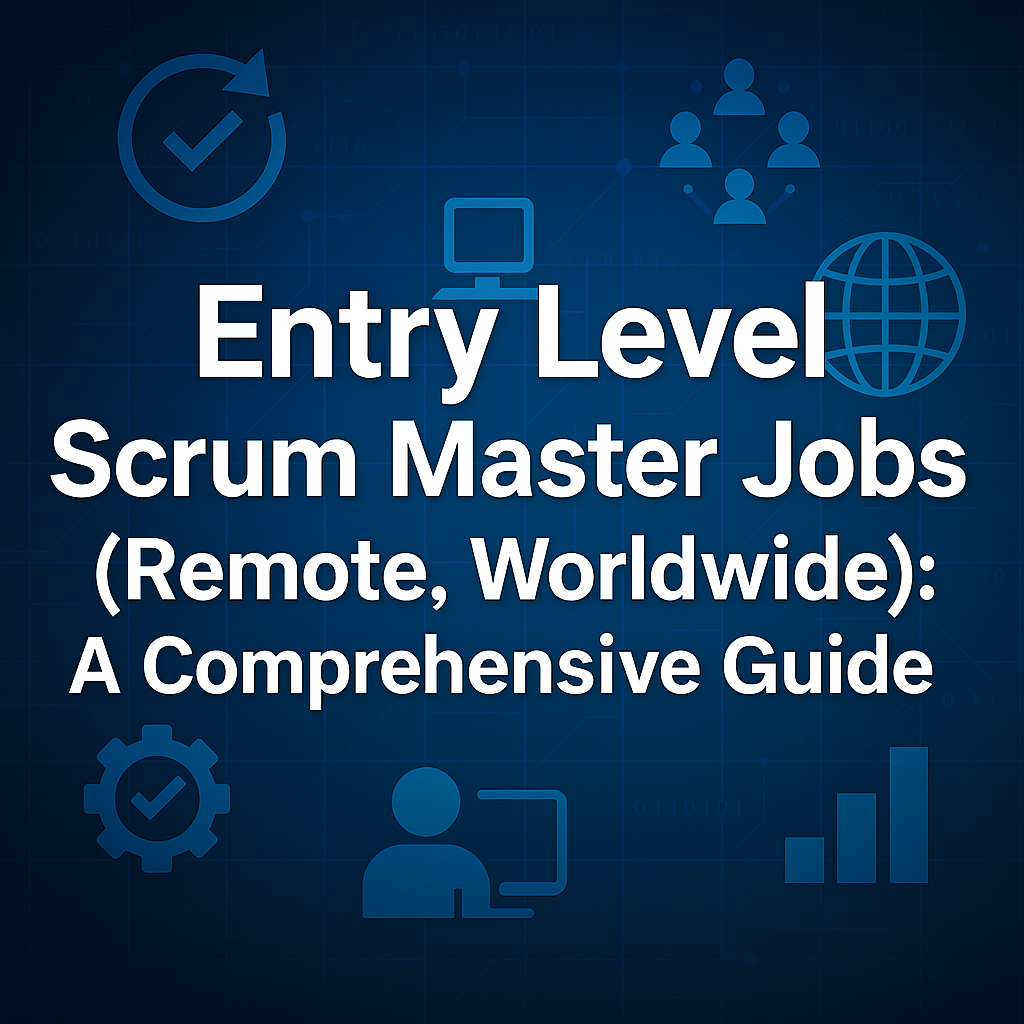Are you looking to start a career as a Scrum Master and work remotely from anywhere in the world? Entry-level Scrum Master jobs are increasingly in demand as companies continue to adopt Agile frameworks and prioritize flexibility in their hiring practices. This guide explores what it means to be an entry-level Scrum Master, what you need to qualify, and where to find remote opportunities around the globe.
What Is a Scrum Master?
A Scrum Master is a key facilitator in Agile development teams. Their main role is to ensure that the team follows Scrum practices, removes impediments, fosters collaboration, and helps the team deliver value efficiently. Although they don’t manage the team in a traditional sense, Scrum Masters serve as coaches, mentors, and protectors of the Agile process.
Why Remote Scrum Master Jobs Are Growing
The shift toward remote work and Agile methodologies has created a global demand for Scrum Masters who can manage virtual teams. Companies benefit by accessing a wider talent pool, while workers enjoy flexibility and work-life balance. Entry-level roles are becoming more common as organizations invest in building Agile talent from the ground up.
Key Responsibilities of an Entry-Level Scrum Master
- Facilitate daily stand-ups, sprint planning, retrospectives, and reviews
- Support the product owner and development team
- Identify and eliminate roadblocks that slow team progress
- Promote Agile values and continuous improvement
- Help manage the team’s backlog and task board
Skills and Qualifications Required
While some employers may prefer candidates with prior experience, many entry-level roles are open to individuals with transferable skills and relevant training. Here’s what you may need:
- Scrum Certification: A Certified ScrumMaster (CSM), Professional Scrum Master (PSM I), or equivalent
- Agile Training: Understanding Agile principles and the Scrum framework
- Communication Skills: Strong verbal and written communication, especially in a remote environment
- Basic Project Management Knowledge: Familiarity with project lifecycles and team collaboration tools like Jira, Trello, or Asana
- Teamwork and Leadership: Ability to encourage and motivate teams without direct authority
Where to Find Remote Entry-Level Scrum Master Jobs
Here are platforms and strategies to help you find the right opportunity:
- Remote Job Boards:
- DailyJobSeeker.com (frequently updated with fresh listings)
- We Work Remotely
- FlexJobs
- Remote OK
- Working Nomads
- Company Career Pages:
- Check tech startups, SaaS companies, and consulting firms
- LinkedIn:
- Use keyword filters like “Entry-Level Scrum Master” + “Remote”
- Join Agile and Scrum communities for networking
- Freelancing and Contract Platforms:
- Upwork
- Toptal
- PeoplePerHour
- Fiverr (for Agile coaching gigs)
Tips to Get Hired as a Remote Entry-Level Scrum Master
- Build a Portfolio: Even if unpaid, volunteer experience as a Scrum Master in student or community projects counts
- Earn a Recognized Certification: This can help you stand out when lacking experience
- Tailor Your Resume: Focus on transferable skills such as team facilitation, communication, and problem-solving
- Leverage Internships and Apprenticeships: Some companies offer Scrum internships that lead to full-time remote roles
- Stay Updated: Read blogs, attend Agile webinars, and follow Scrum trends
Salary Expectations
Entry-level Scrum Masters working remotely can expect salaries that vary by region and company size. As of 2025:
- North America: $50,000 – $75,000 annually
- Europe: €40,000 – €60,000 annually
- Africa and Asia: $15,000 – $30,000 annually (often lower but with opportunities for growth)
Freelance and contract rates may range from $15 to $40/hour depending on experience and project complexity.
Conclusion
Remote, entry-level Scrum Master jobs are accessible to motivated individuals willing to learn and adapt. With proper certification, a solid understanding of Agile, and a proactive job search strategy, you can launch a rewarding career from anywhere in the world. The key is to stay curious, remain coachable, and consistently build both technical and soft skills to succeed in a global virtual team environment.

